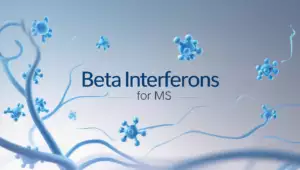Keywords: Natural pain relief for multiple sclerosis, MS and acupuncture benefits, Reflexology for MS symptoms, Cannabidiol (CBD) for MS pain management, MS-friendly herbal supplements
Living with multiple sclerosis (MS) often means dealing with chronic pain that can affect your quality of life. While conventional treatments play a vital role in managing MS, many individuals are turning to natural pain relief for multiple sclerosis to complement their medical care.
These natural treatments for multiple sclerosis focus on reducing pain and inflammation, improving overall well-being, and supporting the body’s ability to cope with this complex condition.
This article explores a range of complementary and alternative medicine options, including MS and acupuncture benefits, reflexology for MS symptoms, Cannabidiol (CBD) for MS pain management, and MS-friendly herbal supplements.
Whether you’re looking to incorporate holistic practices into your routine or deepen your understanding of multiple sclerosis natural treatments, this guide provides practical insights.
Table of Contents
ToggleUnderstanding Multiple Sclerosis Pain
Pain in MS can arise from nerve damage, muscle stiffness, or secondary causes like poor posture and stress. While medications are often prescribed, natural and alternative treatments can provide additional relief by addressing the underlying issues rather than just masking the symptoms.
Natural pain relief methods are especially appealing to those seeking complementary therapies to improve their well-being without relying solely on pharmaceutical interventions. Let’s delve into these options.
1. The Benefits of Acupuncture for MS Pain Relief
Acupuncture, an ancient practice rooted in Traditional Chinese Medicine, has gained popularity as an alternative treatment for MS. By inserting fine needles into specific points on the body, acupuncture aims to restore balance and reduce pain.
How Acupuncture Helps with MS Pain
- Nerve Stimulation: Research indicates that acupuncture may stimulate nerves, releasing pain-relieving chemicals in the brain.
- Reduced Spasticity: Many MS patients experience relief from muscle stiffness and spasms after acupuncture sessions.
- Enhanced Circulation: Improved blood flow from acupuncture can alleviate pain and promote healing.
What the Research Says
A 2020 study on acupuncture for MS pain relief suggested that this therapy could improve quality of life by reducing pain intensity and improving mobility. While more research is needed, anecdotal evidence from MS patients highlights its potential.
2. Reflexology for MS Symptoms
Reflexology is a complementary therapy that involves applying pressure to specific points on the feet, hands, or ears, which correspond to various organs and systems in the body.
Benefits of Reflexology for MS
- Pain Reduction: Reflexology may help interrupt pain signals by stimulating nerve endings.
- Improved Mobility: Some individuals report enhanced balance and coordination.
- Stress Relief: Reflexology promotes relaxation, which can ease MS-related discomfort.
Reflexology isn’t a cure but offers a holistic way to address the physical and emotional aspects of living with MS. Patients often find it a soothing addition to their treatment plans.
3. Cannabidiol (CBD) for MS Pain Management
CBD, a non-psychoactive compound derived from cannabis, has emerged as a powerful tool in natural treatments for multiple sclerosis. Its anti-inflammatory and pain-relieving properties make it an excellent option for MS patients.
How CBD Works for MS Pain
- Easing Neuropathic Pain: MS often causes nerve pain, and CBD interacts with the body’s endocannabinoid system to modulate pain signals.
- Reducing Inflammation: Chronic inflammation is a hallmark of MS, and CBD may help by lowering cytokine levels.
- Improving Sleep: Poor sleep can exacerbate pain. CBD promotes relaxation and better sleep quality.
When considering CBD, opt for high-quality, lab-tested products. Consult with a healthcare provider to determine the appropriate dosage.
4. MS-Friendly Herbal Supplements
Herbal remedies have been used for centuries to manage pain and inflammation. Some herbs show promise in alleviating MS symptoms, providing a natural way to support your body.
A Review of Herbal Therapy in Multiple Sclerosis
- Saffron: Studies like the Effect of Ethanol Extract of Saffron suggest that this herb may have neuroprotective properties, reducing oxidative stress and inflammation in MS.
- Turmeric (Curcumin): Known for its anti-inflammatory effects, turmeric can help reduce MS-related pain and stiffness.
- Ginger: This versatile herb may relieve muscle pain and improve circulation.
- Ashwagandha: Often used in Ayurvedic medicine, ashwagandha helps manage stress and inflammation, two common triggers for MS flare-ups.
While these herbs can be effective, it’s essential to use them under the guidance of a healthcare professional to avoid interactions with MS medications.
Tips for Integrating Natural Pain Relief into Your Routine
1. Combine Treatments for Maximum Effect
For example, pairing reflexology for MS symptoms with CBD oil can amplify their calming effects.
2. Stay Consistent
Natural treatments often take time to show results. Regular sessions of acupuncture for MS pain relief or daily use of herbal supplements can yield better outcomes.
3. Listen to Your Body
Not every therapy works for everyone. Pay attention to what makes you feel better and adjust accordingly.
Frequently Asked Questions
The best pain relief for MS varies depending on the individual. Conventional treatments like anti-inflammatory medications and muscle relaxants are commonly prescribed. However, many people find significant relief through complementary therapies such as acupuncture, CBD, and reflexology. Combining these approaches can often provide a more comprehensive solution.
While it may not be possible to eliminate MS pain entirely, strategies to manage it include:
Using natural treatments for multiple sclerosis, such as CBD and herbal supplements.
Practising mindfulness techniques like yoga or meditation.
Exploring acupuncture for MS pain relief, which can target nerve pain and muscle tension.
Staying physically active with low-impact exercises tailored to your abilities.
Reducing inflammation is crucial in managing MS symptoms. Some effective methods include:
Incorporating anti-inflammatory foods like turmeric and fatty fish.
Using CBD oil, which has been shown to reduce cytokine activity.
Practising stress management techniques, as stress can worsen inflammation.
Considering complementary therapies such as acupuncture and reflexology, which improve circulation and promote relaxation.
Pain in MS occurs due to nerve damage (neuropathic pain), muscle stiffness, and secondary causes like stress or poor posture. Chronic inflammation also contributes to discomfort. Using a mix of conventional and natural pain relief for multiple sclerosis methods can help address these pain triggers more effectively.
Conclusion
Managing MS pain requires a multifaceted approach, blending medical treatments with multiple sclerosis natural treatments. Exploring complementary therapies like acupuncture for MS pain relief, reflexology, and herbal supplements can provide additional relief and improve your quality of life.
By integrating these alternative treatments into your care plan, you may find greater comfort and empowerment in managing your symptoms. Always consult with a healthcare provider before starting new therapies, ensuring they align with your specific needs and medical history.
Embrace the possibilities of holistic care, and take the first step toward a more comfortable and balanced life with MS.
A study focused on the comparison of Crocus sativus L. and imipramine, evaluated their respective efficacies in treating mild to moderate depression.




